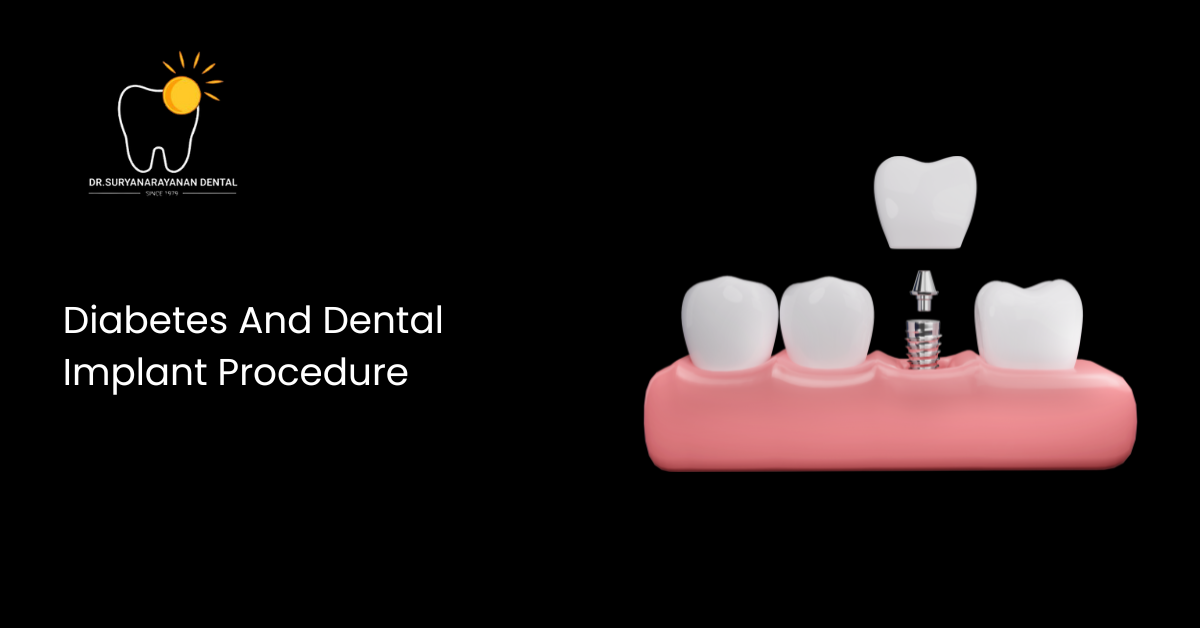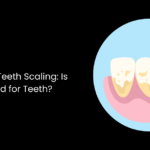For people who lack teeth, dental implants are a great choice for addressing the loss of teeth and restoring their smiles. When it comes to prosthodontics and restorative dentistry, our staff at Dr. Suryanarayanan Dental Clinic has years of expertise.
Even though dental implants work wonders, they aren’t appropriate for everyone. For example, there are certain hazards associated with implant dentistry for those with diabetes. Now that we know that dental implants can be a good option for people with diabetes, let’s look at how diabetes impacts this treatment option.
A BIT ABOUT DENTAL IMPLANTS:
These are replacement tooth roots that are surgically placed into the gums and jawbone. After a few months of recovery, the implant will integrate with the oral tissues, giving it the same function as real tooth roots.
Dental implants, once placed, can hold a variety of dental restorations, including crowns, bridges, partials, and full dentures. Compared to denture creams or other detachable prosthetics, the implants’ enhanced strength and stability are unparalleled.
The Dangers of Diabetes on One’s Health
The inability of the body to properly absorb glucose is the defining characteristic of the metabolic illnesses collectively known as diabetes. The pancreas produces insulin, which aids in controlling glucose levels. Low insulin levels caused by diabetes can cause dangerously high and low blood sugar levels, which in turn can cause blindness, renal disease, and nerve damage, among other complications.
People with diabetes have an increased risk of gum disease and tooth loss compared to the general population. While dental implants may seem like a wonderful solution for diabetics experiencing tooth loss, it’s important to be aware of the potential complications.
DIFFICULTIES IN RECOVERY FOLLOWING ORAL SURGERY
People with diabetes are more likely to have infections than those without the disease. This is because the disease reduces the immune system’s capacity to fend off infections. This is the reason why gum disease is more common, and it could also explain why some people get infections following surgeries. Dental implants are more likely to cause complications for diabetics after oral surgery, which increases the risk of infection.
THE IMPLANT DEPARTURE POTENTIAL FOR FAILURE
In addition to the dangers of infection, some uncontrolled diabetics run the risk of dental implant failure. The implants may not integrate with the oral tissues because the healing process after surgery is too sluggish or inadequate in some patients. If this is the case, the implants won’t hold any kind of dental appliance.
Does a diabetic qualify for dental implants?
Yes, it is often the case.
People with diabetes, whether type 1 or type 2, can still get dental implants if they manage to keep their condition under control, despite the potential complications. We can offer advice on how to deal with tooth loss during your session. Additionally, we will discuss strategies to improve your chances of a successful implant dental procedure.
Also Read: What Can You Do for Missing Teeth?
Meet with your dentist to go over your treatment options.
Schedule a consultation to discuss your tooth-loss treatment options in more detail. If you would like to talk about alternative therapies and implant dentistry in more depth, we would be pleased to do so. We can create a personalized treatment plan by listening to your problems and answering your questions.
Be sure to call our Dr. Suryanarayanan Dental Clinic in Goregaon West now for more information about how diabetes can impair the success of implant dentistry therapy and other dental therapies.



